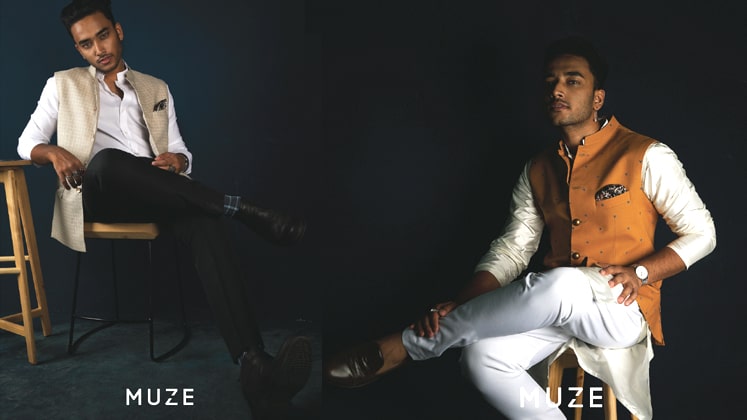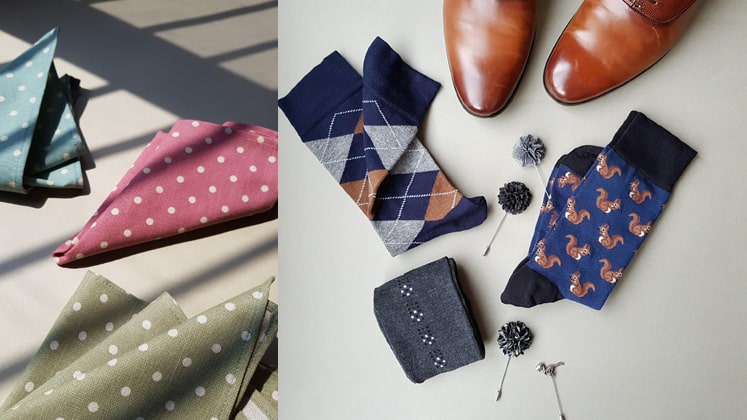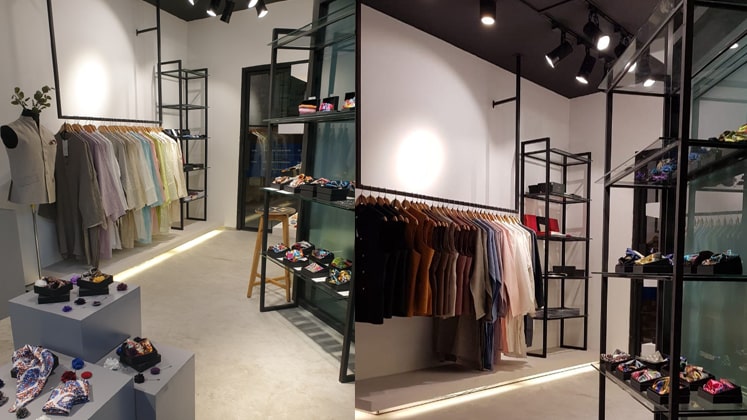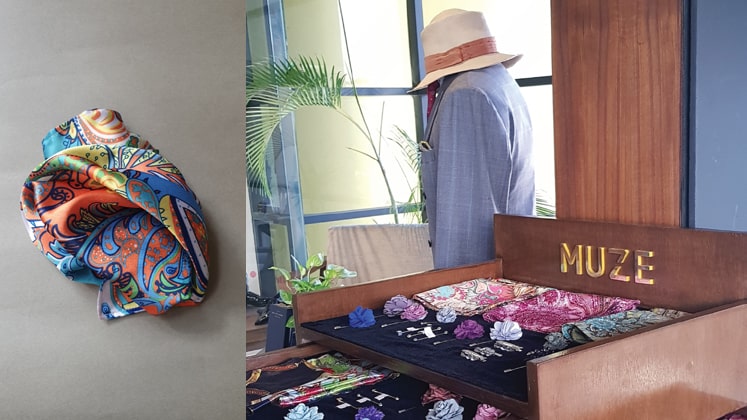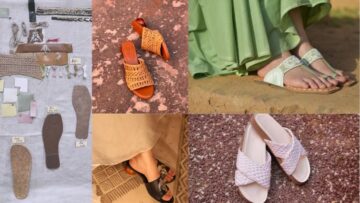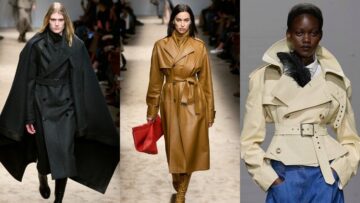Minus a formal education in design, but with a heart full of passion and a mind bursting with creativity, Zayan Rivaan Bari set to realise his childhood dream of establishing Muze in March of 2017.
After a degree in business from Dhaka and an MBA from New York, Zayan returned to Bangladesh to follow his hunches and enter the world of fashion and retail.

Muze’s USP is its aesthetic and its design approach. It aims to achieve minimalist look with quirky twists and patterns – which is somewhat rare to find in a market flooded with embellishments.
With a niche market that caters to consumers within the age group of 21-55 years, Muze’s ideal customer is one who appreciates minimal aesthetics, premium quality, and classic designs. This is someone who has a refined and simplistic outlook of life, but at the same time, is edgy and experimental in his own unique way.
“Clothing is essentially an extension of ourselves, and the outfit we choose to wear is an expression of our personality.” – Zayan Rivaan Bari, Founder, Muze
Muze’s journey is simultaneous with Zayan’s relationship with Mayeesha – his wife and business partner. Mayeesha is an established graphic designer in Bangladesh who has a natural interest in art and design. Putting both their passions together, both of them continue to shape and evolve the brand in the current day including the entire process of creating collections, sourcing materials, product photography and social media marketing.
Also Read: Sharara Zaheen: Taking a backdoor to her dream career
Muze is derived from (mew – ooze) – wordplay on the English word ‘muse’ replacing the S with Z to include both Mayeesha and Zayan’s initials.
What started off with a curated collection of pocket squares has, in a short period of 3 years, grown to encompass fashion clothing for men as well.
“With limited capital, we solely marketed and sold through social media (Facebook and Instagram) adding lapel pins, socks, collar bars, tie pins, and other such formal accessories to our vast collection of pocket squares,” Zayan said, adding, “In our early months, we also participated in quite a few local trade shows, namely MIB Meetup and Night Bazaar which were a huge success for a small start-up like ours and we almost sold out in each of these events. What we enjoyed most about these shows was the fact that we were able to interact with our consumers directly and understand their perspective and share our passion with them.”
“This entire journey has been a learning curve for me and continues being so. There is never an end to learning, and I am open to all opportunities to gain more knowledge, if the future allows me to do so.” – Zayan Rivaan Bari
Two years after being online, Zayan decided to take Muze on the floor (in the literal sense of the word). Thus, began their bricks-and-mortar journey with Muze’s own physical space coming alive in the form of a Design Studio. This was marked by the label launching its first-ever line of ethnic menswear – which comprised panjabis and vests.
Also Read: Guzel: Fusing Bangladesh’s rich culture with contemporary fashion
Product assortment & pricing
Priced from Tk 595 to Tk 12,000 and upwards, Muze features a wide variety of clothing that includes an ethnic line of panjabis and vests along with a quirky assortment of accessories such as pocket squares, socks, lapel pins, collar bars, tie pins and cufflinks. Though most of the business is dominated by ready-to-wear, Muze occasionally also takes custom orders for vests and panjabis.
Curated collections
New collections of accessories are released throughout the year with a special focus on the wedding season (which falls between November and February).
For its clothing line of panjabis and vests, Muze focuses on wedding and festive seasons such as Pohela Boishakh (Bengali New Year) and the two Eids which feature as the largest festivals in Bangladesh.
But when it comes to their fastest selling category – the pocket squares – you would rarely spot the same design after its season has passed. Commenting on the same, Zayan said, “We try our best to maintain and curate a unique collection with each release, and hardly repeat designs in order to present something new and fresh to our clientele at all times.”
Manufacturing & sourcing
All of Muze’s fabrics are sourced either locally from within Bangladesh or globally from countries such as China, Thailand, and Malaysia.
For fabrics such as khadi and raw silk which are used in its vests and panjabis, Muze looks to and taps local wholesalers, and also sources pure linen, cottons, satins and silks from some international vendors based out of these three countries.
The label enjoys a robust manufacturing process which extends to include its clothing and pocket squares in-house, whilst other accessories are personally sourced from various international vendors.
Muze employs highly skilled and specialised masters who take care of the pattern making and stitching of all its garments. These are people who have been in this line of work for generations and the craft has been passed down from forefathers to children to grandchildren and so on. The intricate, detailed embroidery work is meticulously done by hand by Bangladesh-based practiced kaarigars.
Disrupting the menswear market
Muze is successfully pushing the boundaries of how Bangladeshi home-grown men’s fashion is perceived and has to its credit, an extremely positive response from the men of today for the same.
Quoting the philosophy of ‘less is more’, Zayan believes that there is a fine line between experimenting and going overboard. “I have stayed true to my personal aesthetic and have only ever produced clothing and accessories that I would personally wear. I believe this honest approach towards our design has helped us gain appreciation from our clientele.”
Having said that, Muze is constantly challenging itself in the design process by incorporating new twists and techniques in keeping with time and technology.
During the pandemic, consumer behaviour has evolved at a rapid rate. The number of people shopping online in Bangladesh has dramatically and exponentially increased – inducing the group of people who shied away from it pre-COVID-19. The pandemic has just accelerated and put into motion the digital age that had been brimming under the surface for quite some time now.
Commenting on the same, Zayan said, “Digital is booming and I believe functional clothing and accessories will become popular categories going forward.”
The menswear market in Bangladesh is amongst the fastest growing segments within the fashion industry – a growing market but with ample room for improvement when compared to its counterpart – the womenswear market.
“Male consumers are now aware of design trends more than ever before, and can be spotted shopping more often both online as well as in-store as compared to maybe 10 years back,” Zayan corroborated, adding, “Also, consumers of today are far more knowledgeable and exposed to different categories of products, and international trends due to the advent of the digital age. They understand the importance of quality and are willing to spend an extra buck for good quality products.”
Muze products are available for purchase in-store in Dhanmondi, Dhaka as well as online via its own social media platforms on Facebook (www.facebook.com/themuzestore) and Instagram (instagram.com/themuzestore). Some of their accessories are also stocked at Dapper Bespoke in Banani, with plans to extend their services internationally in the near future.
Also Read: Lessons on disrupting the custom menswear market with Mehruz Munir

